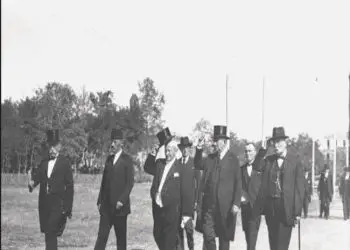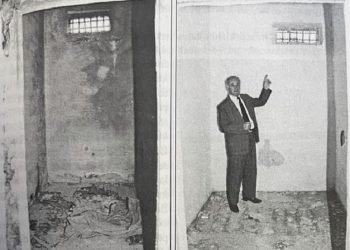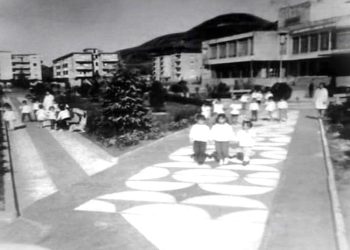By Idriz Lamaj
Part seventeen
From the works of the apostles of ethnic Albania
Xhafer Deva
In light of his own letters and other diaspora revelations
Preface
Memorie.al/ Probably like many others, I often browse letters with my friends and associates, who are no longer in this life. Browsing through them, for a moment unfolds memories that it seems to me that some of them can serve our history. Then, I return to the awareness of the current difficult situation in the ethnic homeland, caused by the quadruple of Albanian politics, I say to myself: “What can my memories of others or the letters of the people of dead?”
Without being the ominous instigator of pessimism, thinking as always of a better future, I return to my obligations to my friends, and as an icy observer of time, without any claim of historical service, when I am given the opportunity of publication, write what I have in mind, always based on their writings and letters. This principle is also followed in this book about Xhafer Deva. I knew Xhafer Deva in person; we exchanged visits and had a strong correspondence.
I spent days off at his house and inherited all of Xhafer Deva’s correspondence with Rexhep Krasniqi, his closest friend, for more than 40 years. After many years, I talked on the phone with Mrs. Deva’s daughter and son-in-law. In the conversation going on, taking advantage of the old friendship, I asked about his letters and they informed me that it was all Qefali Hamdia, a friend of their family.
In June of last year (2001) I went to Kenosha, Wisconsin, a guest of Qefali Hamdia, to look at Xhafer Deva’s correspondence, which Mrs. Deva sent her years ago, when she, due to her advanced age, was closed his house to go to the house of his 5th daughter and son-in-law, Mrs. Burgl Dagmar and Rev. Dennis Logie.
After reading the bulk of the letters, in the languages I knew, I took with me more than a thousand pages of his correspondence, covering a period of over 30 years, 1945 – 1978. Xhafer Deva spoke and wrote seven – eight languages. His correspondence is: Albanian, English, German, Italian, French, Turkish and Serbian. Xhafer Deva’s letters and writings, with the exception of those in Old Turkish and Serbian in Cyrillic, are mostly typewritten, well-kept, and alphabetically arranged, with the persons he dealt with.
That includes his family letters. He carefully kept a copy of every letter he sent and every letter he received. Mrs. Oswalda Deva, daughter Burgl, son-in-law Dennis Logie and Mr. Qefali Hamdia with family, expressed his heartfelt thanks for the trust they gave me. With special gratitude I recall here the help given to me by my brothers – Captain Nue Gjomarkaj and Nikoll Gjomarkaj, in the preparation of one of the most important chapters of this book.
Kapidan Nou, in addition to making available the subject on Xhafer Deva’s relations with the ‘Independent National Bloc’ and sending paratroopers to Albania and Kosovo, reviewed with me each document of that period, and we formulated the text in the form of a conversation; while Nicholas, deciphered the letters, transcribed and translated from Italian, the unpublished materials to date, which were published in this chapter.
Continues from the last number
Xhafer Deva’s life and activity in exile
– Kosovo in the time of Ethnic Albania –
Xhafer Deva in the light of his own letters
Xhafer Deva in the United States of America.
It must also be certified and sent to the Consulate General in Naples, through the State Department. If there is a need for further information, I would be very grateful if you could submit it to Mr. Hollingshead or to me personally. I would also be grateful for any explanation you could give of your work, working and living conditions, as well as your business, of course if these would not cause you any waste of time or inconvenience small. I would like to express once again my heartfelt thanks on my behalf and on behalf of my wife; for all that you are doing for us. May God grant your health and protect you from all the troubles and evils of this world.
With much love and respect, yours Xhafer Deva Rome, January 20, 1955.
On November 18, 1956, Xhafer Deva and his family entered the United States. He landed at New York airport where four or five of his friends were waiting for him. The arrival of Xhafer Deva in the United States of America, as much as he pleased his friends, he also angered his opponents. The editor of the newspaper “Dielli”, Qerim Panariti, in an editorial of the newspaper, attacks Deva as a criminal, traitor, Nazi, etc. “Deva should have been tried in Nuremberg for war crimes,” he said, adding that the US government should send him to Alcatraz, one of America’s best-known prisons. Xhafer Deva responds to Panarit, in a well-known Albanian-American anti-communist newspaper, published in Boston:
Mr. Editor, ‘The Albanian American’, Boston, Mass. In the notebook “The Sun” vol. 47, no. 46, dated January 2, 1957, on page 2, I read some notes on my past and political activity in Albania, things that are completely contrary to the truth. I do not intend to enter into controversy with the editor of “Diellit”, but for the sake of truth, and because I enjoyed your support, like many Albanians who fled the communist regime to secure a job in the United States, giving me the opportunity to complete the necessary formalities for emigration, please have the kindness to publish at the first opportunity in your newspaper the following:
The editor of “Diellit” says:
- I wonder how I am in Boston, and how the American authorities could have allowed me to come to America;
- Put me in the ranks of World War II criminals of Germany and Japan tried by the Allies;
- Since the German occupation, I have recruited a group of criminals and put them under my command, to devastate Albania, which the governments of that time did and did not do, being once again the prime minister;
- What a thought and desire that my country should not be in Boston, but in Alcatraz, the famous prison of the United States of America.
- I did not come to America to disturb the waters of anyone, much less the editor of ‘Diellit’, whom I do not know, and he supposedly knows me. As a hundred thousand escaped from there the Iron Curtain, I too have found refuge in this generous and freedom-loving country, completing all the necessary formalities for issuing an immigration visa. I am more than convinced that the American Consular Authorities have their own resources and are thoroughly informed about anyone who wants to come to the United States, and that they do not rely on the sources of the Sun editor.
- From the capitulation of Germany until 1947, I was in Austria occupied by Allied forces, and I was never invited by the authorities to give explanations about my political activity in Albania during the German occupation, which proves that I was not in the turn of war criminals, where the editor wants to see me.
III. As a member of the then government headed by Mr. Rexhep Mitrovica, I was entrusted with the department of the Ministry of Interior, from September 1943 to July 1944. As for the clarification of the honest Albanian-American opinion, in this cabinet participated Albanian patriots known and honored here as well, as the deceased: Kol Tromara and Bahri Omari, both killed by the communists. In this period, there was no one in Albania who did and has not done the Cabinets.
The High Council, composed of the most qualified Albanian patriots, such as Mehdi Frashëri (today in Italy), Lef Nosi, Father Anton Harapi (both shot by the communist regime) and Fuat Dibra, acted on the basis of the Statute of Lushnja and has entrusted the mandate for the formation of governments as per the laws in force. Army and gendarmerie recruitment has been done by government bodies and never by me personally.
Although the editor of ‘Diellit’ calls them criminals, I am one of those who call the hero all those who gave their lives for the protection of Albania’s ethnic borders and fought the Slavo-Albanian red hordes.
- The Sun’s editor’s opinion that my country is in Alcatraz and not Boston is an ordinary expression that deserves no response. With best regards, Mr. Editor, please accept my respects.
Xhafer Deva, Jamaica Plain, January 30, 1957.
Note: Xhafer Deva married in April 1952 the Austrian lady, Oswalda (Huber) Kaiser, who was left with three orphaned children as a result of the loss of her husband during World War II. They spent an exemplary family life and educated their children in the best schools in the country. Like many emigrant personalities, Xhafer Deva supported his family with physical work. For four years, in New York and Boston, Mass., He did simple work and translated for various agencies to provide for his family.
In the early 1960s, he settled in Calavera County, California, where he worked in a lumber mill, reminiscent of the work he once did in his sawmill in the Ibar Valley. In 1962 he was employed in the accounts and mail department at Stanford University in Palo Alto, California. She worked there until she retired in 1972. Mrs. Oswalda also worked in the university library for many years.
Working careers at Stanford University is a special chapter of their lives. There they made many friends and were distinguished for their skills in the work they did. Xhafer Deva participated in many academic conferences and was considered one of the best analysts of the time. A file of his correspondence is filled with writings, invitations, thanks for participation, and requests for information about various political developments in the communist bloc. Xhafer Deva was twice invited as a speaker at the American Military Academy of West Point, the world-famous academy.
The reorganization of the ‘League of Prizren’ in exile and its first Congress
From Rexhep Krasniqi’s correspondence with Xhafer Deva, it is understood that in 1962, at the initiative of the ‘Kosovo Group’ based in New York, determined efforts were made to establish an independent Kosovar political organization in the free world, composed and directed by Albanians from different provinces of Kosovo, including those in Macedonia and Montenegro. Based on this initiative, a meeting was held in New York, attended by Kosovars living in this large American center. At that meeting, which was held on October 20, 1962, after casual talks, the establishment of the organization in question was unanimously decided, which, as it was to be expected, was renamed the ‘League of Prizren’. The New York Initiative Group, formally formed as such, unanimously approved the announcement of a Draft Program that served as a line of activity until the convening of a Congress.
The draft program was prepared by dr. Rexhep Krasniqi who was also the first inspirer and supporter of the organization in question: “As after this Project-program, the League of Prizren, relying on the traditional spirit of the first historical League and the Second League, has the main goal and the final realization of the unification of the Albanian population of more than one and a half million and of their lands under Yugoslav captivity, with mother Albania, thus the realization of a truly ethnic Albania “. This project program and a letter from Dr. Krasniqi, Deva kept in a special file, to tell friends that he had not been of the opinion for the reorganization of the League, but had been the others who had found the support and inspiration of Krasniqi and the Committee “Free Albania” , for the reorganization of the League.
Xhafer Deva wrote to Rexhep Krasniqi, Iliaz Peka and Ismet Berisha, not to undertake such an activity. Advises them to form a club called “Prizren League”, where Kosovars get to know each other, conduct cultural activities, read the press, follow the developments in Kosovo, Albania and in exile and do not engage in no way in the political parties of 1913 Albania. He wrote to Krasniqi on March 17, 1963:
“I do not know how a national political movement of the ‘Prizren League’ type is organized, maintained, and functioning without genuine intellectuals, without money and without any possibility of official support from the United States. Even if we provide some kind of support from this country, we do not have the money or the intellectuals to start the activity. You can think as you want but I do not agree with you… “To make it a reality to lead the League by Deva , the initiators go to him in California for a visit. With friendly pressures and promises that everything would be fixed and going well, they finally persuaded him to be put in charge of the League. During the conversation and his attempt to convince that such an action should not be taken, Deva was deeply touched by a statement of Mr. Destan Berisha.
After Mehmet Aga Rashkoci had finished his words, supporting Xhafer Deva’s position, he addressed Destani: “What about you Destan, why don’t you speak, say something”? Destani turns to him in deep despair: he knows that we have no one else to lead us; we have no one but you. “Xhafer Deva could not easily forget the date of June 26, 1950, when among the other volunteers of death, was the parachutist Destan Berisha, whom he had recruited himself and on the same day, Destani and other comrades, had left in the field of honor the commander of the group, Captain Riza Osmani, in a bloody match with the Albanian communist forces.
He could not forget that Destani after the murder of the Captain had led the group, crossing on foot Mirdita, the northern parts of Albania, the Gjakova Mountains, and had entered Kosovo. After completing the mission faithfully, he had crossed on foot, traversing almost half of Yugoslavia, and had entered Greece. Deva accepts the presidency and the New York Group, already enthusiastic about his promise, began with special announcements and in July 1963, issued a bulletin called the “League of Prizren”, which called on all Kosovars in free world, to take an active part in the reorganization of the League.
Serious responses to the calls, announcements, and efforts to do something about it, Kosovars responded in a short time, and branches of the League were established in Toronto, Canada, on February 24, 1963, in Brussels, on November 17, 1963, in Paris, 1 January 1964, Melbourne, Australia, 2 February 1964, Racin-Milwakee (USA), 19 April 1964, Waldkraiburg and München, Germany, 25 April 1964, Chicago, 25 April 1964, in Istanbul, on 28 November 1964, in Kaiserslautern, Germany, on 7 April 1965, and in London, Canada, on 1 January 1966, etc.
The center in New York, emphasizing the organizational empowerment of these branches, based on the spirit of a modern society, began its activities in various fields. In 1963 he was distinguished for organizing a large Kosovar demonstration in front of the United Nations Palace, on October 22, 1963, on the occasion of President Tito’s visit to the UN. The demonstration was intensified with the massive participation of the Albanian nationalist diaspora in the USA. Thus, for years, until the meeting of the first Congress (26-27 November 1966) and the legalization of the League, it can be said that the League becomes one of the most powerful Albanian political organizations in exile. Of course, behind each of her actions was Xhafer Deva, who approved the actions more than he participated himself. Memorie.al




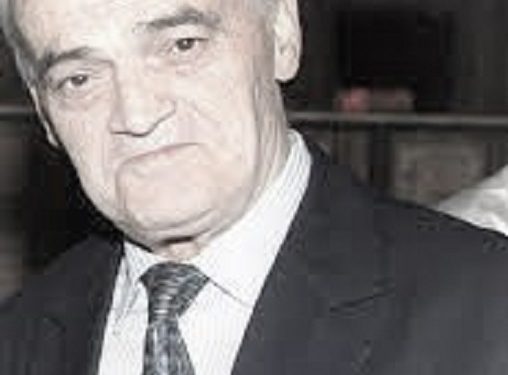
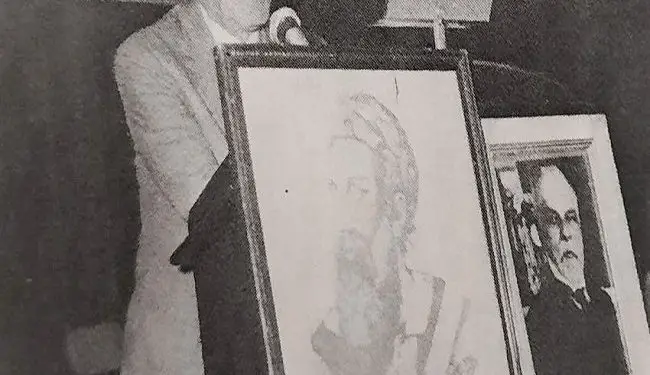
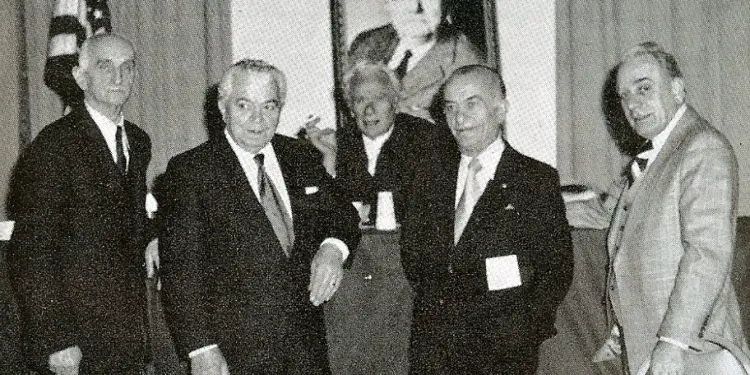
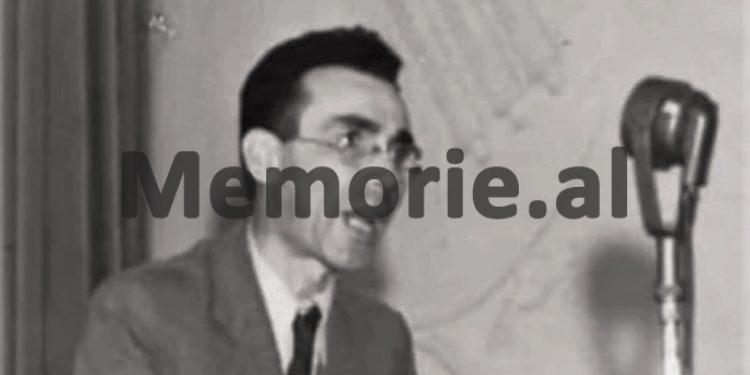
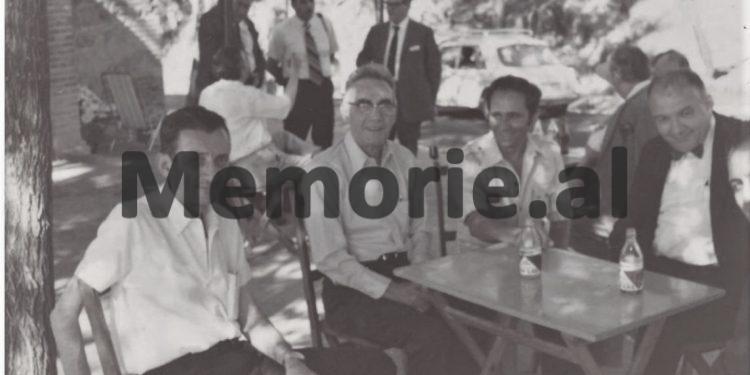
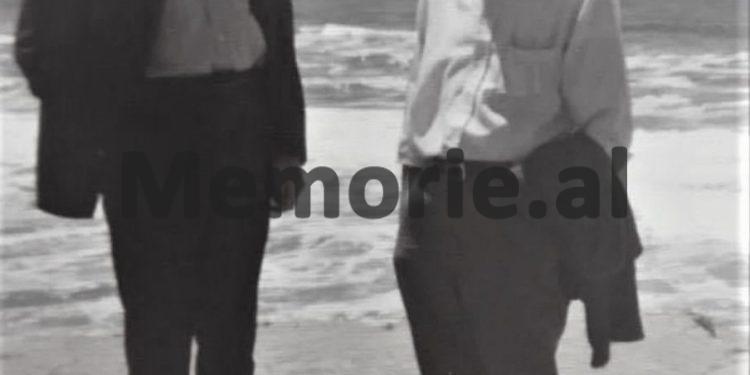
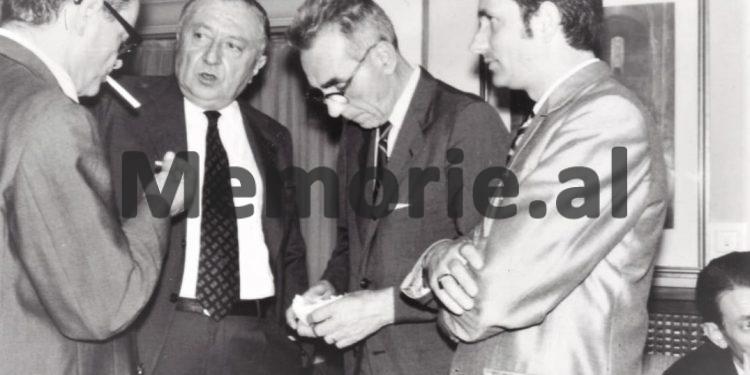
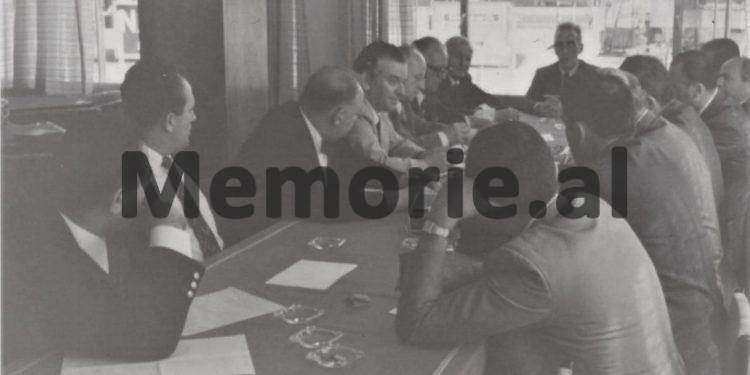
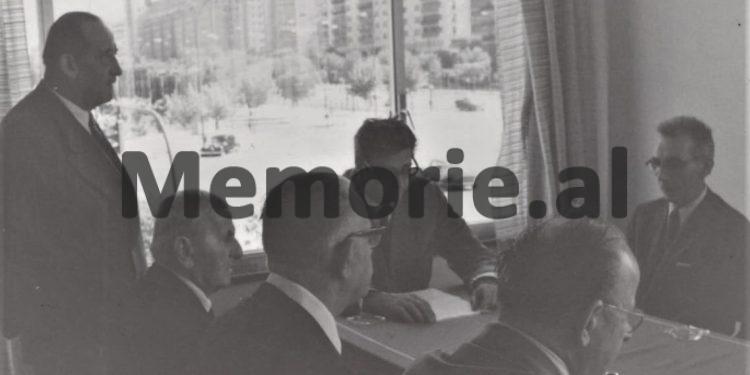
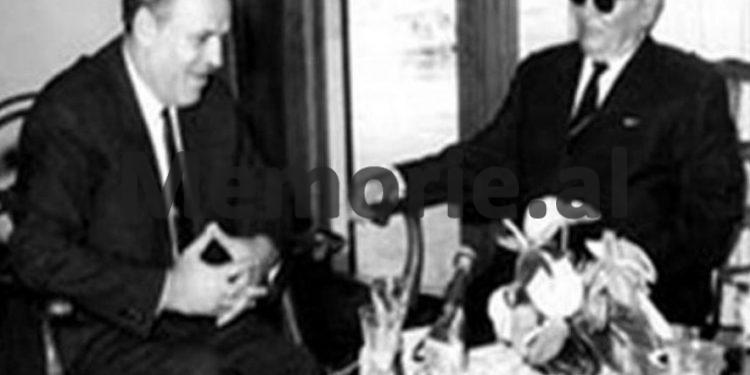
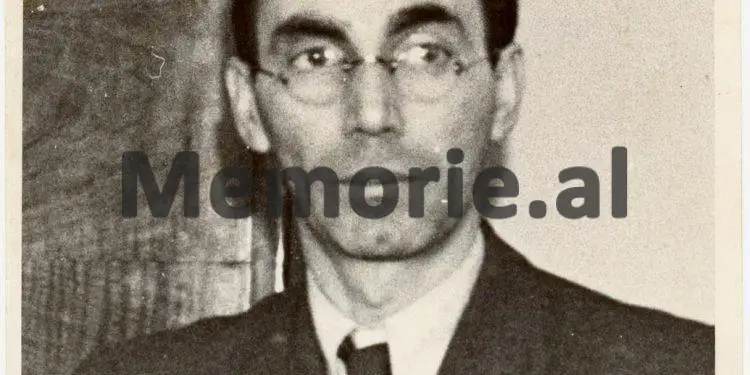

![“After the ’90s, when I was Chief of Personnel at the Berat Police Station, my colleague I.S. told me how they had once eavesdropped on me at the Malinati spring, where I had said about Enver [Hoxha]…”/ The testimony of the former political prisoner.](https://memorie.al/wp-content/uploads/2024/09/admin-ajax-4-350x250.jpg)
